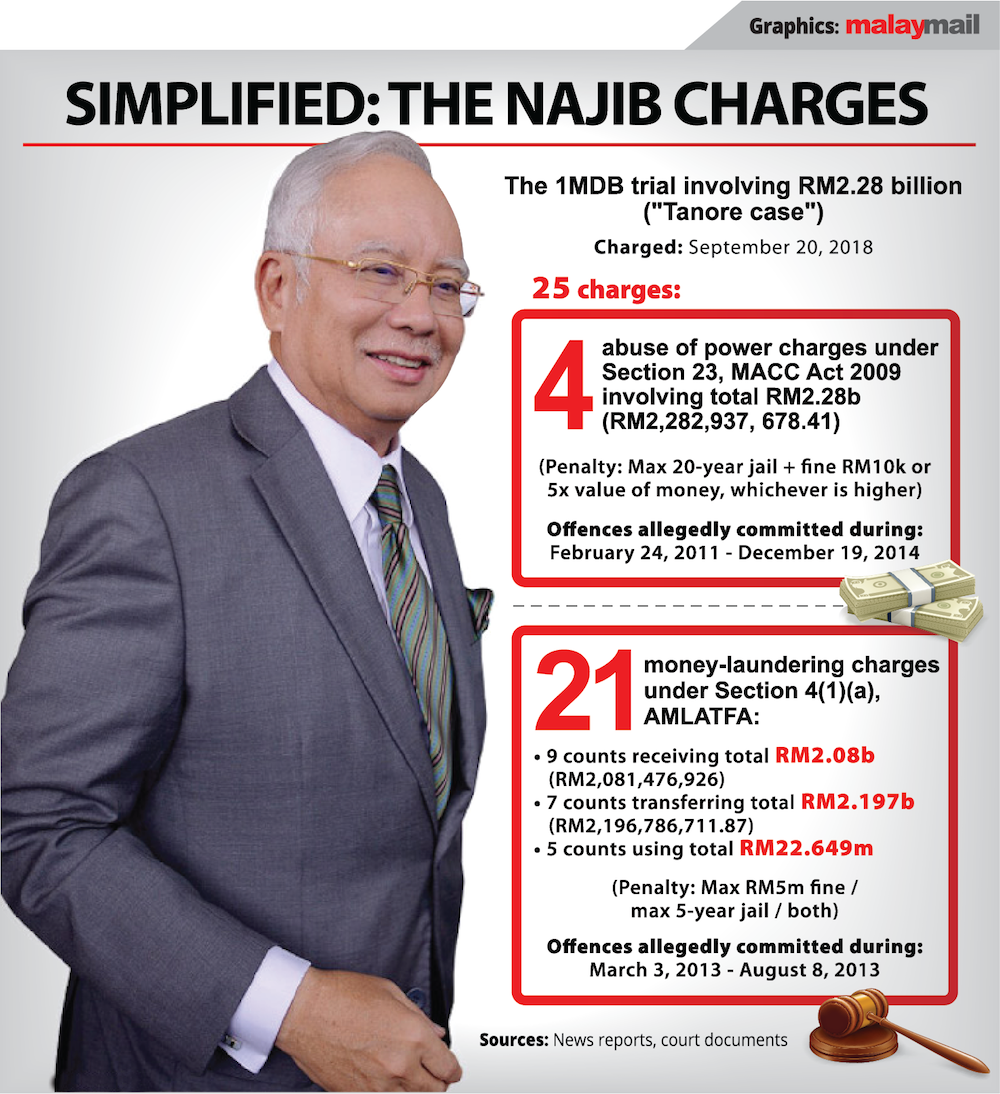KUALA LUMPUR, June 23 — The prosecution plans to call in 20 more prosecution witnesses to testify in Datuk Seri Najib Razak’s trial over the misappropriation of more than RM2 billion of 1Malaysia Development Berhad’s (1MDB) funds before it closes its case against the former prime minister.
At the High Court today, deputy public prosecutor Deepa Nair Thevaharan said her team has called 15 new witnesses for June alone.
“We have another 20 more witness before we can close our case,” she told judge Datuk Collin Lawrence Sequerah.
The 1MDB trial started on August 28, 2019 and has faced disruptions related to Covid-19 over the past two years.
The prosecution called 18 witnesses by May this year and coupled with the 15 to date, this means a total of 33 people altogether.
Today is the last day of the 1MDB trial for this month.
The next scheduled trial dates for the 1MDB trial will be in August, and for most of the weeks in September until December 2022.
In a criminal trial, the prosecution would present its case by producing evidence and calling in prosecution witnesses to testify, with the court to then decide whether the prosecution has shown a prima facie case and whether the accused would then need to enter defence.
One of the possible scenarios is where the court decides that the prosecution has not shown a prima facie case, which would mean the accused would walk free from the charges.
If the court decides that the prosecution has shown a prima facie case that would require the accused to choose whether to put up a defence, the accused can choose to either remain silent, or testify by sworn evidence from the witness stand where he will be subjected to cross-examination or by unsworn statement from the accused dock.
The accused can also call in defence witnesses, before the court decides if the accused is guilty or not guilty of the charges.
It is only if a person is found guilty that the court would then proceed to deliver sentencing such as the fine amount or jail term, depending on the type of offences committed and the facts of the case.
Another possible scenario in trials generally is that the court could decide that the accused person has to enter defence on only some of the charges, while acquitting the accused of the other charges.























